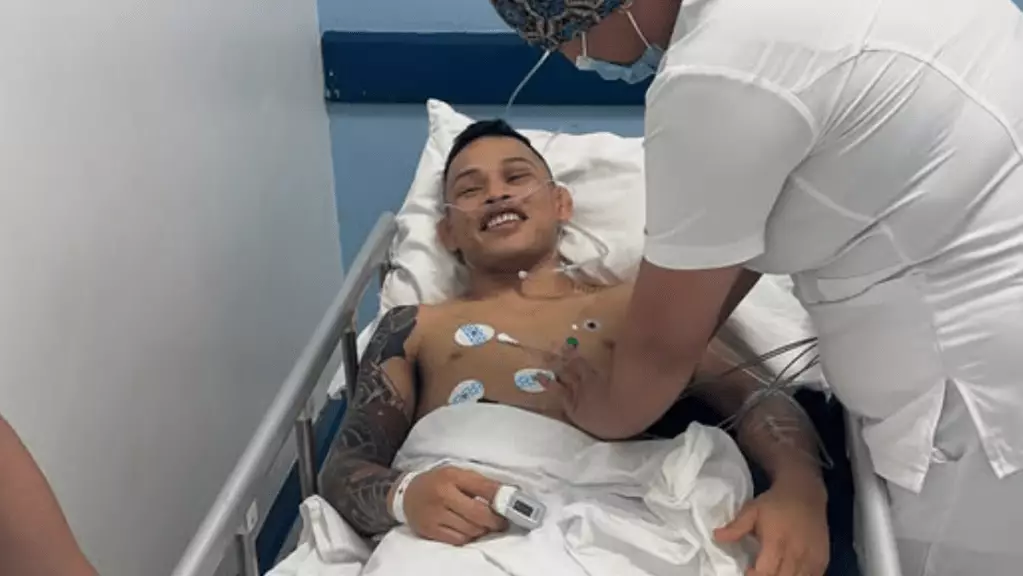For a fighter like Rolando Rodriguez, the bright lights of the UFC and the electric atmosphere of his home crowd in Mexico City presented a unique set of expectations. With a burgeoning reputation as one of Mexico’s most promising mixed martial artists, the stakes couldn’t have been higher as he prepared to face Kevin Borjas at UFC on ESPN 64. However, what should have been a night of glory quickly turned into an ordeal that tested not just his physical stamina, but also his mental fortitude.
Rodriguez entering the octagon with a prestigious background of 17 wins and only 2 losses amplified the pressure surrounding the event. That he failed to make weight, tipping the scales at 127 pounds—one pound over the limit for a non-title flyweight bout—was already a heartbreaking foreshadowing of what was to come. The significance of this weight cut cannot be overstated; it’s a prerequisite in the fight game, and missing it not only results in financial penalties but also places immense psychological strains on the athlete.
The Consequences of a Tough Cut
Even in the wake of these struggles, Rodriguez maintained an air of resilience, posting on Instagram to assure his fans of his well-being after being hospitalized due to complications from the aggressive weight cut. The irony of needing the attention of medical professionals immediately after such a ritualistic process reflects the hidden dangers athletes face in pursuit of excellence. The UFC often glamorizes the idea of resilience, but for many fighters like Rodriguez, that resilience comes with steep costs.
His loss to Borjas, a unanimous decision that marked Rodriguez’s first defeat in the octagon, was devastating in both a sporting and personal sense. The weight of expectation had turned into the weight of disappointment, and for a fighter so used to success, deriving motivation in defeat can be an uphill battle. In the world of MMA where public perception often swings like a pendulum, a single loss can tarnish a rising star’s image, presenting an existential threat to their career trajectory.
The Role of Community and Legacy
Despite this setback, Rodriguez’s popularity suggests he has a community ready to support him through these turbulent times. With over 2 million Instagram followers, he represents not just himself but an entire generation of Mexican fighters longing for recognition on the global stage. The presence of Mexican boxing legend Julio Cesar Chavez at his entrance signifies a lineage of greatness that Rodriguez aims to continue. Such endorsements carry weight, emphasizing the cultural significance of his presence in the octagon.
The aftermath of this fight will likely shape Rodriguez into not just a competitor but a more seasoned fighter. Every setback serves as fodder for introspection. Perhaps it’s an opportunity for him to recalibrate and discover why he stepped into the ring in the first place. As he embarks on this process of recovery — both physically and mentally — the MMA community will be watching closely to see if he can rise from the ashes of this difficult moment, transforming adversity into the cornerstone of a stronger comeback.

